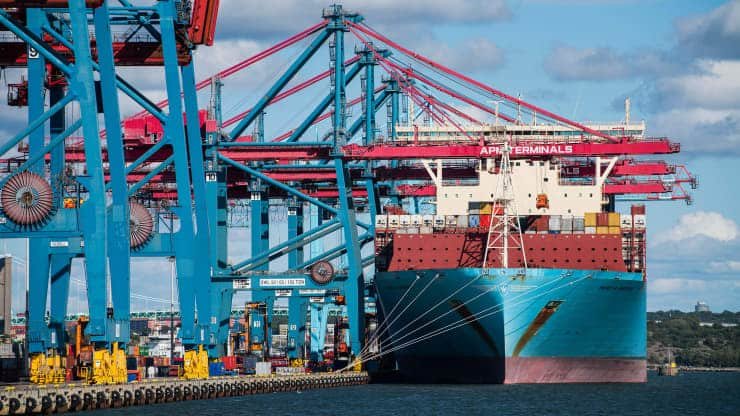
This week, the European Union is expected to propose an unprecedented revamp of its carbon market, attempting for the first time to put a price on shipping emissions.
On July 14th, the European Commission, the EU’s executive arm, will present its “green fuel” rule for EU shipping. It is part of a larger reform package aimed at meeting the EU’s revised climate targets.
The EU has committed to reducing net carbon emissions by 55% (when compared to 1990 levels) through to 2030, becoming climate neutral by 2050.
The EU says this will require a 90% reduction in transport emissions over the next three decades.
To meet these aims, the EU intends to undergo the most extensive overhaul of its Emissions Trading System (ETS) since the policy’s inception in 2005. The ETS, which is now the world’s largest carbon trading scheme, is largely expected to expand to cover shipping for the first time.
This has the region’s shipowners worried and according to Lars Robert Pedersen, deputy secretary general of BIMCO, the world’s largest international maritime association, the industry is concerned about the EU’s ambitions.
He claimed that the plan was “not conducive” to international policy, that it would fail to cut regional carbon emissions, and that it would ultimately drain money from the shipping industry that could otherwise be spent on decreasing emissions in the fleet.
An alleged leaked plan for the first-ever rule forcing ships to gradually transition to sustainable marine fuels, surfaces last week.
The EU has stated that action to address EU international emissions from navigation and aviation is “urgently needed,” and attempts to address these issues will aim to increase the production and use of sustainable aviation and maritime fuels.
Pedersen cautioned against panicking over the leaked draught, stressing that it might be altered in the coming days and that there are many more barriers to clear before the proposals become EU policy.
The final revisions would first need to be negotiated by EU member states and the European Parliament, a process that analysts say might take two years.
Shipping, accounts for around 2.5% of worldwide greenhouse gas emissions, is seen as a particularly challenging industry to decarbonize because low-carbon fuels are not generally available at the scale required.
Furthermore, the shipping sector is not the only one that has spoken out against the EU’s proposals.
Industry experts are concerned as the leaked draught does not promote investment in low-carbon fuels like renewable hydrogen and ammonia. Instead, it claims that the proposal favours liquefied natural gas and “questionable” biofuels as alternatives to marine fuel oil.
The European Union’s Emissions Trading System (ETS) is the bloc’s primary mechanism for lowering greenhouse gas emissions that cause climate change. It requires high-polluting industries, ranging from aviation to mining, to purchase carbon credits in order to create a financial incentive for enterprises to pollute less.
However, one issue now plaguing the plan is so-called “carbon leakage,” in which corporations shift output (and emissions) elsewhere due to the relative expense of polluting in Europe.
The EU is intended to solve this issue, potentially introducing the carbon border adjustment mechanism as early as 2023. The strategy aims to level the playing field in terms of carbon emissions by imposing domestic carbon price on imports.